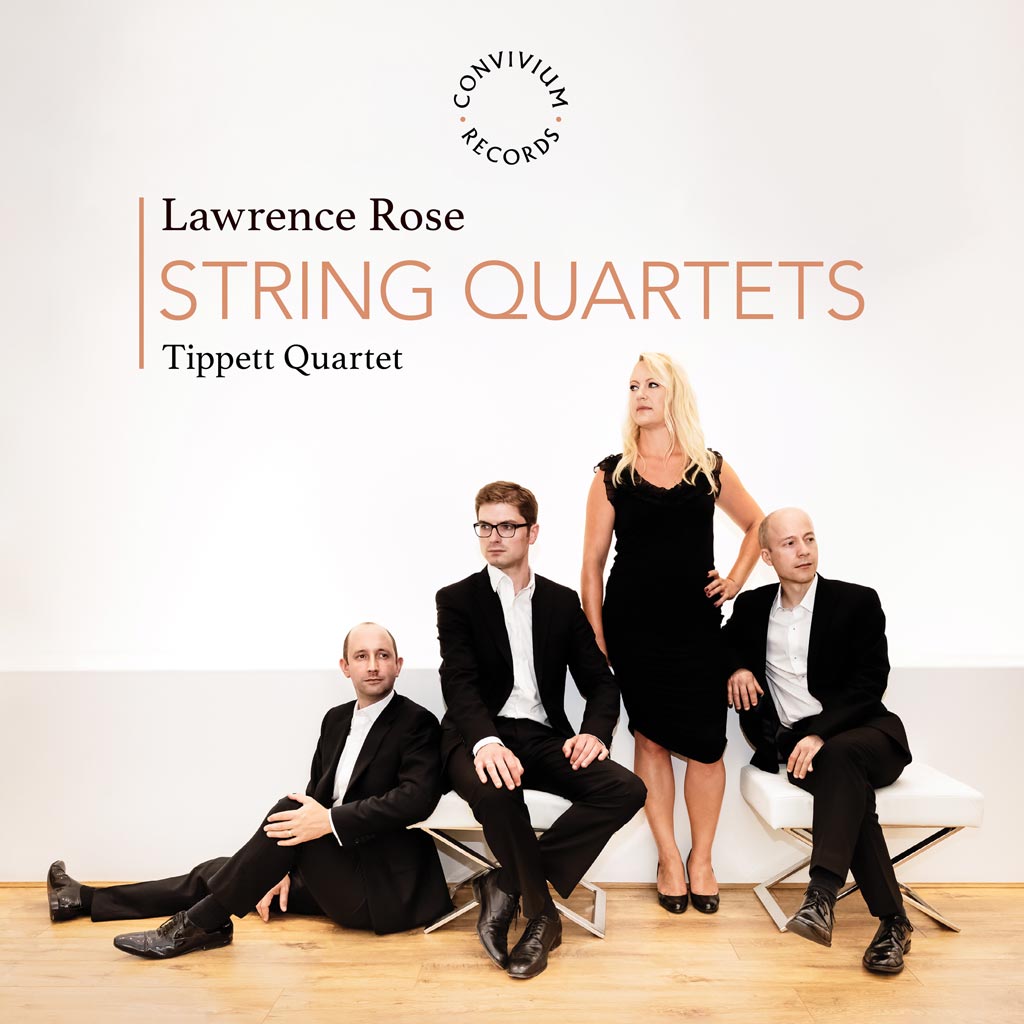Lawrence Rose: String Quartets – Review by BBC Music Magazine
“Pleasurable listening... the Tippett Quartet remain superb musicians and advocates.”
3rd October 2025
Lawrence Rose: String Quartets – Review by BBC Music Magazine
“Pleasurable listening... the Tippett Quartet remain superb musicians and advocates.”
3rd October 2025

Listen or buy this album:
What a determined and thoughtful composer Lawrence Rose is. Largely self-taught in music, he pushed his passion mostly to one side while working in Britain as a lawyer, only to take early retirement and move to Chicago, where he’s notched up over 30 opus numbers within 24 years. The works are not flighty creations either: five symphonies, three violin concertos, five string quartets. The present album features the 36-minute Quartet No.4, a meaty affair (think Bartók, Shostakovich). There’s also Danses pour Quatuor, an earlier work structured on French Baroque lines but with dances including the tango, and a foxtrot with a twelve-tone theme: a fusion of old forms and new thinking typical of Rose’s approach to everything from harmony to sonata form.
At 31 minutes, Danses proves rather too long, and doesn’t always sit easily on the ear. The opening movement, Rigaudon, is notably dissonant, though the music’s tangles decrease over time. The Tippett Quartet, however, relish every note. The string quartet is equally obdurate at the start, choking its first movement with so much organic development of tiny cells that you wish the composer would stop thinking so hard and take time to relax. Later movements, happily, are better balanced between tough musical fibre and pleasurable listening. But whatever the mood and the music’s density, the Tippett Quartet remain superb musicians and advocates.
Review written by:
Review published in:
Other reviews by this author:
What a determined and thoughtful composer Lawrence Rose is. Largely self-taught in music, he pushed his passion mostly to one side while working in Britain as a lawyer, only to take early retirement and move to Chicago, where he’s notched up over 30 opus numbers within 24 years. The works are not flighty creations either: five symphonies, three violin concertos, five string quartets. The present album features the 36-minute Quartet No.4, a meaty affair (think Bartók, Shostakovich). There’s also Danses pour Quatuor, an earlier work structured on French Baroque lines but with dances including the tango, and a foxtrot with a twelve-tone theme: a fusion of old forms and new thinking typical of Rose’s approach to everything from harmony to sonata form.
At 31 minutes, Danses proves rather too long, and doesn’t always sit easily on the ear. The opening movement, Rigaudon, is notably dissonant, though the music’s tangles decrease over time. The Tippett Quartet, however, relish every note. The string quartet is equally obdurate at the start, choking its first movement with so much organic development of tiny cells that you wish the composer would stop thinking so hard and take time to relax. Later movements, happily, are better balanced between tough musical fibre and pleasurable listening. But whatever the mood and the music’s density, the Tippett Quartet remain superb musicians and advocates.